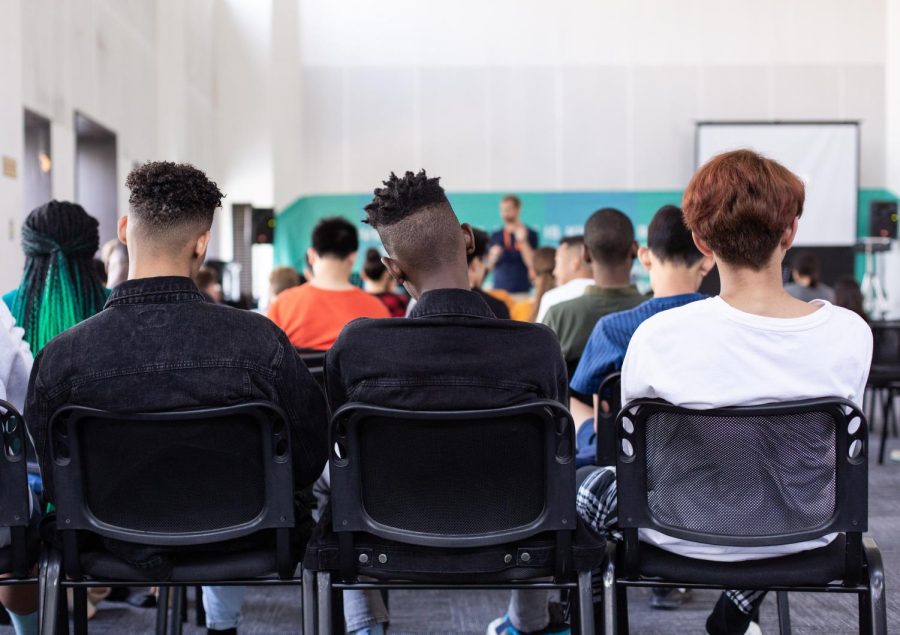Florida Bans New AP African American Studies Course
February 10, 2023
The Florida Department of Education has recently made the decision to ban CollegeBoard’s AP African American Studies course from being taught in Florida schools. The decision was immediately met with widespread backlash, with many criticizing Florida and Ron DeSantis’ suppression of Black history. As the situation continues to unfold, the future of the course remains uncertain.
AP African American Studies is a new course published by the College Board that aims to highlight the stories and contributions of African Americans in our history. Although it’s historically accurate, has been reviewed by professors from over 200 colleges, and is being tested at over 60 high schools, the inclusion of topics such as intersectionality and queer theory has ruffled feathers, particularly those of Republicans. This controversy was a major factor in Florida’s decision.
Much of the outrage comes from the politicizing of education. “It’s really unfortunate and frustrating that Black history is being politicized by the governor of Florida for easy culture war points,” said Scott Montanero, a history teacher at Ida B. Wells. Montanero expressed a popular belief that in education, open discussion should be encouraged and the banning of an entire course in favor of Republican beliefs is counterintuitive to core American values.
But what’s worse is that the ban goes beyond the classroom. With this measure, Florida is doing more than banning a course; they’re communicating to the Black community that their history is unimportant. “When you think about history, history is a collection of stories, and it’s unfortunate that certain stories are prioritized over others,” said Norman Stremming, an anthropology teacher at Wells.
The ban is not just the suppression of a class, but of a people. “By attacking AP African American studies, these politicians are attacking more than just a class,” said Montanero, emphasizing the point. “They’re attacking the very idea of representation for Black Americans in our schools and our education system.”
Additionally, the criticism is directed not just at the Florida Department of Education, but also at CollegeBoard for their lackluster response to the ban. Rather than pushing back against Florida, they opted to modify the course to satisfy conservative demands.
“From what I can tell I’m really disappointed in the College Board… They’ve caved to the demands of DeSantis and Florida, and changed aspects of the course,” said Montanero. Specifically, subjects including the Black Lives Matter movement, slavery reparations, and queer theory are no longer part of the course. As of February 1st, they are solely available as optional topics for an end-of-year project.
The banning of AP African American Studies is without a doubt a landmark decision in education politics. But it’s just one event in a series of similar bans stifling discussion in the name of educational integrity. Critics have cited Florida’s “Don’t Say Gay” bill, the “Stop W.O.K.E. Act”, and the banning of the New York Times’ 1619 Project in comparison to the current situation.
“I think it’s a violation of teachers’ and students’ first amendment rights to teach and learn about things that we want to teach and learn about,” said Montanero. It’s also important to note that all of these laws target marginalized communities, further pushing their stories even further under the radar. “When you do not include everyone, then you’re not really providing a full image of history,” said Stremming. History should be an unfiltered account of the past, not a sanitized version that carefully avoids uncomfortable truths.
Worse, bans that originate in Florida have a tendency to spread to other states. “We’ve seen this before with other restrictive bills against what teachers can and can’t teach in high school,” said Montanero, referencing other curricula that contain sensitive race-related material. Florida banned the 1619 Project in 2021, and several states later followed suit, introducing bills that target the teaching of racism from an institutional perspective.
The banning of AP African American Studies isn’t the first anti-Black history bill we’ve seen and it won’t be the last. It’s another incident in a chain of bans that seem to indicate that Black history is only acceptable in a form that’s sanitized and white-approved. “Across the country, we see there being more and more restrictions on curriculum and it’s minimizing people’s identities, people’s experiences, [and] people’s cultures,” said Stremming. “It’s minimizing people and it has a dangerous effect. I really don’t want it to continue to spread.”



